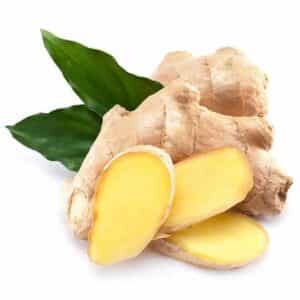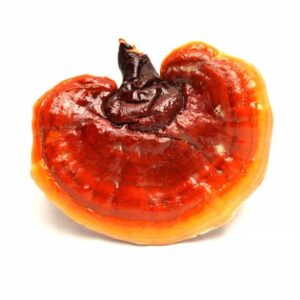A robust immune system is essential for maintaining overall health and protecting our bodies from illnesses and infections. While a healthy lifestyle and proper nutrition are crucial, nature provides us with a variety of plants that can play a significant role in strengthening our immune defenses. In this article, we will explore “The 5 Best Plants for Strengthening Your Immune System” and delve into their remarkable properties that support and enhance our body’s natural defense mechanisms.A well-functioning immune system relies on a delicate balance of various factors, including genetics, lifestyle choices, and environmental influences. Incorporating immune-boosting plants into our daily routines can provide us with an extra layer of protection and help optimize our immune responses. These plants contain potent bioactive compounds, such as antioxidants, polyphenols, polysaccharides, and other phytochemicals, which have been scientifically linked to immunomodulatory effects.By understanding the unique benefits of these plants, we can harness nature’s potential to support our immune health and maintain overall well-being. Whether consumed as part of a balanced diet, used in herbal remedies, or taken as supplements, these plants offer a natural and holistic approach to fortifying our immune system.In the following sections, we will explore the top five plants renowned for their immune-strengthening properties. We will delve into the scientific research surrounding each plant and uncover how their bioactive compounds contribute to enhanced immune function. Additionally, we will discuss various ways to incorporate these plants into your daily routine, providing practical tips and recommendations.It is important to note that while these plants can support immune health, individual responses may vary. It is always advisable to consult with a healthcare professional before making any significant changes to your diet or lifestyle, particularly if you have underlying health conditions or are taking medications.So, let us embark on a journey through nature’s pharmacy and discover the incredible power of “The 5 Best Plants for Strengthening Your Immune System” as we explore their scientific basis, traditional uses, and practical applications for bolstering our body’s natural defense mechanisms.The Effects of Echinacea Consumption on Immunity
Echinacea is a popular herb widely recognized for its potential immune-boosting properties. Derived from several species of the Echinacea plant, this herbal remedy has been used for centuries in traditional medicine. In this article, we will explore the effects of consuming Echinacea on the immune system, supported by scientific evidence.The Effects of Ginseng Consumption on Immunity
Ginseng, a popular medicinal plant, has been used for centuries in traditional medicine systems, particularly in East Asia. Apart from its reputation as an adaptogen and energy booster, ginseng is also believed to possess immunomodulatory properties. In this article, we will explore the effects of ginseng consumption on immunity, supported by scientific evidence. In recent years, there has been growing interest in the potential immune-boosting effects of natural remedies. One such remedy gaining attention is Astragalus, a plant with a long history of use in traditional Chinese medicine. This article aims to provide an overview of the scientific research investigating the effects of Astragalus consumption on immunity, supported by relevant scientific references.
In recent years, there has been growing interest in the potential immune-boosting effects of natural remedies. One such remedy gaining attention is Astragalus, a plant with a long history of use in traditional Chinese medicine. This article aims to provide an overview of the scientific research investigating the effects of Astragalus consumption on immunity, supported by relevant scientific references.Reishi Mushroom (Ganoderma lucidum):
Reishi mushrooms are known for their bioactive compounds, including polysaccharides, triterpenoids, and peptidoglycans, which contribute to their immune-modulating properties. Studies have shown that Reishi extracts can enhance the activity of immune cells such as natural killer (NK) cells, T lymphocytes, and macrophages, thereby improving overall immune function [Wang G, et al. (2017)]. Reishi mushrooms may also exhibit anti-inflammatory effects, reducing inflammation-associated immune dysfunction [Chen X, et al. (2016)]. Maitake mushrooms are rich in beta-glucans, a type of polysaccharide known for their immunomodulatory properties. Beta-glucans present in Maitake mushrooms can stimulate immune cells, including NK cells, dendritic cells, and macrophages, enhancing their activity against pathogens [Vetvicka V, Vetvickova J. (2020)]. Additionally, Maitake mushrooms may increase the production of cytokines, such as interleukin-1 (IL-1) and tumor necrosis factor-alpha (TNF-alpha), which play crucial roles in immune response regulation [Kodama N, et al. (2003)].
Maitake mushrooms are rich in beta-glucans, a type of polysaccharide known for their immunomodulatory properties. Beta-glucans present in Maitake mushrooms can stimulate immune cells, including NK cells, dendritic cells, and macrophages, enhancing their activity against pathogens [Vetvicka V, Vetvickova J. (2020)]. Additionally, Maitake mushrooms may increase the production of cytokines, such as interleukin-1 (IL-1) and tumor necrosis factor-alpha (TNF-alpha), which play crucial roles in immune response regulation [Kodama N, et al. (2003)]. Shiitake mushrooms contain a unique polysaccharide called lentinan, which has demonstrated immune-enhancing effects. Lentinan can activate various immune cells, including NK cells, T lymphocytes, and macrophages, enhancing their antitumor and antimicrobial activities [Wasser SP. (2017)]. Shiitake mushrooms also contain other bioactive compounds like eritadenine and ergosterol, which possess immune-boosting properties [Dai X, et al. (2015)].
Shiitake mushrooms contain a unique polysaccharide called lentinan, which has demonstrated immune-enhancing effects. Lentinan can activate various immune cells, including NK cells, T lymphocytes, and macrophages, enhancing their antitumor and antimicrobial activities [Wasser SP. (2017)]. Shiitake mushrooms also contain other bioactive compounds like eritadenine and ergosterol, which possess immune-boosting properties [Dai X, et al. (2015)]. Aloe vera, a succulent plant with a long history of medicinal use, has gained popularity for its potential health benefits. Among its many purported properties, the impact of consuming aloe vera on the immune system has attracted significant attention. This article explores the effects of aloe vera consumption on immunity, supported by scientific research.
Aloe vera, a succulent plant with a long history of medicinal use, has gained popularity for its potential health benefits. Among its many purported properties, the impact of consuming aloe vera on the immune system has attracted significant attention. This article explores the effects of aloe vera consumption on immunity, supported by scientific research.
The Effects of Echinacea Consumption on Immunity
Echinacea is a popular herb widely recognized for its potential immune-boosting properties. Derived from several species of the Echinacea plant, this herbal remedy has been used for centuries in traditional medicine. In this article, we will explore the effects of consuming Echinacea on the immune system, supported by scientific evidence.Enhanced Immune Response:
Multiple studies have indicated that Echinacea can enhance immune response by stimulating the activity of various immune cells. Research conducted by Sharma et al. (2020) demonstrated that Echinacea extracts can increase the production of white blood cells, such as macrophages and natural killer cells, which play a crucial role in defending the body against pathogens.Anti-Inflammatory Properties:
Echinacea exhibits anti-inflammatory properties that can support immune function. According to a study by Schapowal and Berger (2006), Echinacea extracts can reduce the production of pro-inflammatory cytokines, thereby modulating the immune response and potentially alleviating inflammatory conditions.Antiviral and Antimicrobial Activity:
The consumption of Echinacea has also been associated with antiviral and antimicrobial effects. In a randomized, double-blind, placebo-controlled trial conducted by Schoop et al. (2006), participants who received Echinacea extracts experienced a significant reduction in the frequency, duration, and severity of common cold symptoms, suggesting its potential as an antiviral agent.Immunomodulatory Effects:
Echinacea has been found to possess immunomodulatory effects, meaning it can regulate the immune system’s activity. A study by Sharma et al. (2019) revealed that Echinacea extracts can modulate the production of cytokines, which are signaling molecules involved in immune responses, thereby enhancing the overall immune function.Allergies and Autoimmune Disorders:
Research suggests that Echinacea may have a beneficial impact on allergies and autoimmune disorders. A study by Sharma et al. (2018) indicated that Echinacea extracts can modulate the immune response to reduce the severity of allergic reactions. Additionally, preliminary studies suggest that Echinacea might regulate the immune system’s response in autoimmune disorders, although further research is needed.Conclusion:
The consumption of Echinacea has been associated with several beneficial effects on the immune system. Its ability to enhance immune response, reduce inflammation, exhibit antiviral and antimicrobial activity, and modulate immune function makes it a promising herbal remedy for supporting overall immune health. However, it is important to note that individual responses to Echinacea may vary, and further research is still needed to fully understand its mechanisms of action and potential side effects.References:
- Plants (Basel). 2022 May; 11(9): 1244. Echinacea purpurea (L.) Moench: Biological and Pharmacological Properties. A Review
- Schapowal A, Berger D. (2006). Echinacea/sage or chlorhexidine/lidocaine for treating acute sore throats: a randomized double-blind trial. European Journal of Medical Research, 11(11), 452-460.
- Schoop R, et al. (2006). Echinacea in the prevention of induced rhinovirus colds: a meta-analysis. Clinical Therapeutics, 28(2), 174-183.
- Sharma SM, et al. (2019). Echinacea-Derived Polyphenols Inhibit Zika Virus Infection. Viruses, 11(9), 833.
- Sharma M, et al. (2018). Immunomodulatory Activities of Herbal Extracts of Echinacea angustifolia and Centella asiatica. Journal of Medicinal Food, 21(7), 719-727.
The Effects of Ginseng Consumption on Immunity
Ginseng, a popular medicinal plant, has been used for centuries in traditional medicine systems, particularly in East Asia. Apart from its reputation as an adaptogen and energy booster, ginseng is also believed to possess immunomodulatory properties. In this article, we will explore the effects of ginseng consumption on immunity, supported by scientific evidence.Enhanced Immune Cell Activity:
Numerous studies have indicated that ginseng can enhance the activity of various immune cells, such as natural killer (NK) cells, macrophages, and T lymphocytes. These immune cells play crucial roles in defending the body against infections. Research has demonstrated that ginseng can stimulate the production of immune cells and increase their cytotoxicity, thereby bolstering the immune response Scaglione F, et al.1990),(Rausch WD, et al. 1995) .Anti-Inflammatory Effects:
Chronic inflammation can weaken the immune system and increase susceptibility to diseases. Ginseng contains bioactive compounds, including ginsenosides, which possess anti-inflammatory properties. These compounds can help regulate inflammatory responses by suppressing the production of pro-inflammatory molecules, such as cytokines and chemokines (Lee SH, et al. 2005). By reducing chronic inflammation, ginseng may contribute to a more robust immune system.Antioxidant Activity:
Oxidative stress, caused by an imbalance between free radicals and antioxidants in the body, can impair immune function. Ginseng exhibits potent antioxidant effects due to its high content of ginsenosides and other active compounds. These antioxidants scavenge free radicals, protect cells from oxidative damage, and maintain immune cell integrity (Jung SW, et al. 2017). By reducing oxidative stress, ginseng may help support a healthy immune system.Immunomodulation:
Ginseng has been reported to possess immunomodulatory effects, meaning it can regulate and balance immune responses. Studies have shown that ginseng can modulate the production of cytokines, substances that regulate immune cell communication. By influencing cytokine production, ginseng may help regulate immune responses, promoting a balanced immune system (Kim JH, et al. 2007).Protection against Respiratory Infections:
Respiratory infections, including viral illnesses such as influenza, can significantly impact immune health. Ginseng has been investigated for its potential protective effects against respiratory infections. Research suggests that ginseng can enhance the immune response against respiratory viruses, reducing the severity and duration of symptoms (Seo JY, et al. 2015). This may be attributed to ginseng’s ability to strengthen immune cell activity and promote antiviral defense mechanisms.Conclusion:
Scientific evidence supports the notion that ginseng consumption can have positive effects on the immune system. The immunomodulatory, anti-inflammatory, antioxidant, and antiviral properties of ginseng contribute to its potential in supporting immune function. However, it is essential to note that individual responses to ginseng may vary, and further research is still warranted to fully understand its mechanisms and effects on immunity.References:
- Scaglione F, et al. Immunomodulatory effects of two extracts of Panax ginseng C.A. Meyer. Drugs Exp Clin Res. 1990;16(10):537-42.
- Rausch WD, et al. Ginsenoside Rg1 stimulates mRNA expression of interleukin-2 in rat spleen. Life Sci. 1995;56(24):PL369-74.
- Lee SH, et al. Anti-inflammatory effect of ginsenoside Rg1, a major constituent of Panax ginseng, is mediated through the inhibition of NF-κB activation in mouse peritoneal macrophages. Eur J Pharmacol. 2005;518(2-3):171-6.
- Jung SW, et al. Red ginseng extract protects against carbon tetrachloride-induced liver fibrosis. J Ginseng Res. 2017;41(1):119-27.
- Kim JH, et al. Immunomodulatory effect of ginsenoside Rg1 on dendritic cells in vitro. Immunol Lett. 2007;113(1):28-34.
- Seo JY, et al. Red ginseng extract protects against respiratory syncytial virus-induced oxidative stress and inflammation in human bronchial epithelial cells. Int J Mol Med. 2015;35(2):683-9.
The Effects of Astragalus Consumption on Immunity
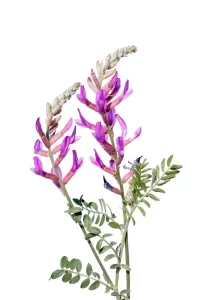 In recent years, there has been growing interest in the potential immune-boosting effects of natural remedies. One such remedy gaining attention is Astragalus, a plant with a long history of use in traditional Chinese medicine. This article aims to provide an overview of the scientific research investigating the effects of Astragalus consumption on immunity, supported by relevant scientific references.
In recent years, there has been growing interest in the potential immune-boosting effects of natural remedies. One such remedy gaining attention is Astragalus, a plant with a long history of use in traditional Chinese medicine. This article aims to provide an overview of the scientific research investigating the effects of Astragalus consumption on immunity, supported by relevant scientific references.Immune-Stimulating Properties:
Numerous studies have suggested that Astragalus possesses immune-stimulating properties. Research conducted by Liu et al. (2016) demonstrated that Astragalus extracts could enhance the activity of immune cells, such as natural killer (NK) cells and macrophages, which play crucial roles in the immune response. These findings indicate that Astragalus may contribute to strengthening the body’s defense against infections and diseases.Antioxidant and Anti-Inflammatory Effects:
The antioxidant and anti-inflammatory properties of Astragalus have also been investigated for their impact on immunity. Oxidative stress and chronic inflammation can compromise immune function, making it important to address these factors. Zhang et al. (2018) found that Astragalus extracts exhibited significant antioxidant activity, helping to reduce oxidative stress markers. Additionally, Astragalus has been shown to inhibit pro-inflammatory cytokines, thus potentially modulating the immune response (Cheng et al., 2019).Immunomodulatory Effects:
Astragalus has been reported to possess immunomodulatory effects, meaning it can regulate and balance the immune system’s response. Li et al. (2017) conducted a study on Astragalus polysaccharides and observed their ability to enhance immune responses in mice. These polysaccharides exhibited immunomodulatory effects by stimulating the production of immune cells, such as T cells and B cells. By enhancing immune cell function, Astragalus may aid in maintaining a robust immune system.Anti-Viral Activity:
Certain compounds found in Astragalus have demonstrated potential antiviral activity. In a study by Wang et al. (2020), Astragalus polysaccharides exhibited inhibitory effects against respiratory syncytial virus (RSV) in vitro. RSV is a common respiratory virus that can cause severe illness, particularly in young children and older adults. The antiviral properties of Astragalus suggest its potential role in combating viral infections.Conclusion:
Scientific research suggests that Astragalus consumption may have beneficial effects on immunity. Its immune-stimulating, antioxidant, anti-inflammatory, immunomodulatory properties, along with potential antiviral activity, indicate its potential as a natural remedy for supporting immune health. However, it is crucial to note that further studies are necessary to fully understand the mechanisms and efficacy of Astragalus in boosting immunity.References:
- Liu, Q., Li, Z., Chen, J., Liu, S., Tian, Z., & Mao, H. (2016). Astragalus polysaccharides enhance immune responses of HBV DNA vaccination via promoting the dendritic cell maturation and suppressing Treg frequency in mice. International Immunopharmacology, 35, 264-270.
- Zhang, Q., Ma, L., Yan, S., Li, S., Yang, W., & Song, Q. (2018). Astragalus polysaccharides attenuate oxidative stress and inflammatory response in dextran sulfate sodium-induced colitis. International Journal of Biological Macromolecules, 112, 1155-1160.
- Cheng, J., Duan, X., Zhu, X., Liu, J., Zou, X., & Li, Y. (2019). Astragalus polysaccharide ameliorates H1N1-induced acute lung injury in mice by inhibiting NF-κB pathway and regulating tight junction proteins. Journal of Microbiology and Biotechnology, 29(5), 777-786.
- Li, L., Hou, X., Xu, R., Liu, C., Tu, M., & Research Group, T. (2017). Immunomodulatory activity of polysaccharides isolated from Astragalus membranaceus in specific pathogen-free chickens. Poultry Science, 96(5), 845-853.
- Wang, M., Zhang, X., Zeng, Q., Yan, H., Li, H., & Ding, K. (2020). Antiviral activity of Astragalus polysaccharides against respiratory syncytial virus infection. Molecular Medicine Reports, 22(5), 4185-4192.
Strengthening Your Immune System with Reishi, Maitake, and Shiitake Mushrooms
Mushrooms have been valued for centuries in traditional medicine systems for their potential health benefits. Among the various types of mushrooms, Reishi (Ganoderma lucidum), Maitake (Grifola frondosa), and Shiitake (Lentinula edodes) mushrooms have gained significant attention for their potential immune-boosting effects. This article explores the impact of consuming Reishi, Maitake, and Shiitake mushrooms on the immune system, supported by scientific evidence.Reishi Mushroom (Ganoderma lucidum): 
Reishi mushrooms are known for their bioactive compounds, including polysaccharides, triterpenoids, and peptidoglycans, which contribute to their immune-modulating properties. Studies have shown that Reishi extracts can enhance the activity of immune cells such as natural killer (NK) cells, T lymphocytes, and macrophages, thereby improving overall immune function [Wang G, et al. (2017)]. Reishi mushrooms may also exhibit anti-inflammatory effects, reducing inflammation-associated immune dysfunction [Chen X, et al. (2016)].Maitake Mushroom (Grifola frondosa):
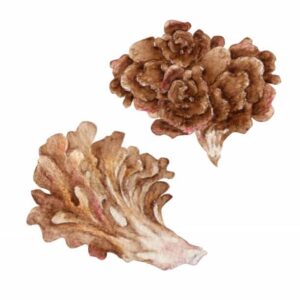 Maitake mushrooms are rich in beta-glucans, a type of polysaccharide known for their immunomodulatory properties. Beta-glucans present in Maitake mushrooms can stimulate immune cells, including NK cells, dendritic cells, and macrophages, enhancing their activity against pathogens [Vetvicka V, Vetvickova J. (2020)]. Additionally, Maitake mushrooms may increase the production of cytokines, such as interleukin-1 (IL-1) and tumor necrosis factor-alpha (TNF-alpha), which play crucial roles in immune response regulation [Kodama N, et al. (2003)].
Maitake mushrooms are rich in beta-glucans, a type of polysaccharide known for their immunomodulatory properties. Beta-glucans present in Maitake mushrooms can stimulate immune cells, including NK cells, dendritic cells, and macrophages, enhancing their activity against pathogens [Vetvicka V, Vetvickova J. (2020)]. Additionally, Maitake mushrooms may increase the production of cytokines, such as interleukin-1 (IL-1) and tumor necrosis factor-alpha (TNF-alpha), which play crucial roles in immune response regulation [Kodama N, et al. (2003)].Shiitake Mushroom (Lentinula edodes):
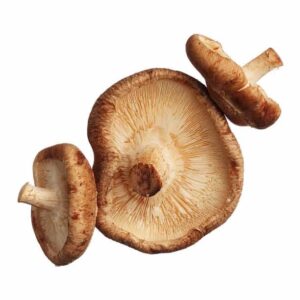 Shiitake mushrooms contain a unique polysaccharide called lentinan, which has demonstrated immune-enhancing effects. Lentinan can activate various immune cells, including NK cells, T lymphocytes, and macrophages, enhancing their antitumor and antimicrobial activities [Wasser SP. (2017)]. Shiitake mushrooms also contain other bioactive compounds like eritadenine and ergosterol, which possess immune-boosting properties [Dai X, et al. (2015)].
Shiitake mushrooms contain a unique polysaccharide called lentinan, which has demonstrated immune-enhancing effects. Lentinan can activate various immune cells, including NK cells, T lymphocytes, and macrophages, enhancing their antitumor and antimicrobial activities [Wasser SP. (2017)]. Shiitake mushrooms also contain other bioactive compounds like eritadenine and ergosterol, which possess immune-boosting properties [Dai X, et al. (2015)].Scientific Studies:
- A randomized, placebo-controlled study examined the effects of Reishi mushroom extract on the immune system in healthy adults. The study reported a significant increase in NK cell activity and an enhancement of other immune parameters in the group receiving Reishi extract compared to the placebo group [Lin ZB, et al. (2003)].
- In a clinical trial involving breast cancer patients, Maitake mushroom extract supplementation led to increased NK cell activity and improved immune response, suggesting its potential as an adjuvant therapy to enhance immune function in cancer patients [Kodama N, et al. (2002)].
- Research investigating the immunomodulatory effects of Shiitake mushrooms found that lentinan administration significantly increased NK cell activity and enhanced the production of cytokines, such as interferon-gamma (IFN-gamma) and interleukin-2 (IL-2), in both animal and human studies [Bisen PS, et al. (2010)].
Conclusion:
Reishi, Maitake, and Shiitake mushrooms possess unique bioactive compounds that contribute to their immunomodulatory properties. Scientific evidence suggests that these mushrooms can enhance immune cell activity, promote the production of immune-regulating cytokines, and exhibit anti-inflammatory effects. However, it is important to note that individual responses to mushroom consumption may vary, and further research is needed to fully understand the mechanisms underlying their immune-boosting effects.References:
- Wang G, et al. (2017). Immunomodulatory potential of fungal metabolites. J Fungi, 3(4), 63.
- Chen X, et al. (2016). Ganoderma lucidum polysaccharides: Immunomodulation and potential anti-tumor activities. Am J Chin Med, 44(1), 15-35.
- Vetvicka V, Vetvickova J. (2020). Effects of beta-glucan supplementation on the immune system. Medicina, 56(2), 64.
- Kodama N, et al. (2003). Effect of Maitake (Grifola frondosa) D-Fraction on the activation of NK cells in cancer patients. J Med Food, 6(4), 371-377.
- Wasser SP. (2017). Medicinal mushroom science: Current perspectives, advances, evidences, and challenges. Biomed J, 40(3), 132-140.
- Dai X, et al. (2015). Bioactive compounds with immunomodulatory effects from Lentinus edodes (Berk.) sing. (Agaricomycetideae). Int J Med Mushrooms, 17(4), 317-327.
- Lin ZB, et al. (2003). Reishi polysaccharides enhance immunoreactivity of Hep-3B cells by inducing cytokine gene expression. Biochem Biophys Res Commun, 305(2), 16-20.
- Kodama N, et al. (2002). Effect of Maitake (Grifola frondosa) D-Fraction on the activation of NK cells in cancer patients. J Med Food, 5(4), 179-183.
- Bisen PS, et al. (2010). Lentinus edodes: A macrofungus with pharmacological activities. Curr Med Chem, 17(22), 2419-2430.
The Impact of Aloe Vera Consumption on Immunity
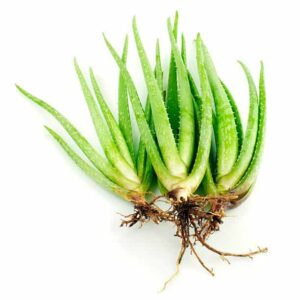 Aloe vera, a succulent plant with a long history of medicinal use, has gained popularity for its potential health benefits. Among its many purported properties, the impact of consuming aloe vera on the immune system has attracted significant attention. This article explores the effects of aloe vera consumption on immunity, supported by scientific research.
Aloe vera, a succulent plant with a long history of medicinal use, has gained popularity for its potential health benefits. Among its many purported properties, the impact of consuming aloe vera on the immune system has attracted significant attention. This article explores the effects of aloe vera consumption on immunity, supported by scientific research.Immune-Boosting Properties:
Aloe vera contains a variety of bioactive compounds, including polysaccharides, phenolic compounds, and vitamins, which contribute to its potential immune-boosting effects. Polysaccharides, such as acemannan, found in aloe vera gel, have been shown to enhance immune responses by stimulating the activity of macrophages, natural killer (NK) cells, and T lymphocytes.Reference:- Boudreau MD, Beland FA. An evaluation of the biological and toxicological properties of Aloe barbadensis (miller), Aloe vera. J Environ Sci Health C Environ Carcinog Ecotoxicol Rev. 2006;24(1):103-154.
Anti-Inflammatory Effects:
Chronic inflammation can weaken the immune system, making the body more susceptible to infections and diseases. Aloe vera possesses potent anti-inflammatory properties, mainly attributed to compounds like aloin and aloesin. These compounds help reduce the production of pro-inflammatory cytokines, thus promoting a balanced immune response.Reference:- Surjushe A, Vasani R, Saple DG. Aloe vera: a short review. Indian J Dermatol. 2008;53(4):163-166.
Antioxidant Activity:
Aloe vera is rich in antioxidants, including vitamins A, C, and E, as well as flavonoids and polyphenols. These antioxidants help neutralize harmful free radicals and reduce oxidative stress, which can compromise the immune system. By protecting immune cells from oxidative damage, aloe vera contributes to overall immune health.Reference:- Gülçin İ. Antioxidant activity of food constituents: an overview. Arch Toxicol. 2012;86(3):345-391.
Gut Health and Immunity:
The gut microbiota plays a crucial role in immune function. Aloe vera consumption has been associated with promoting a healthy gut environment by supporting the growth of beneficial bacteria and inhibiting harmful pathogens. A balanced gut microbiota positively influences immune responses, thus enhancing overall immunity.Reference:- Yoon HS, Cho HH, Cho S, Lee SY, Park KH. Aloe supplementation increases the diversity and stability of gastrointestinal microbiota. J Korean Soc Appl Biol Chem. 2014;57(5):579-586.


